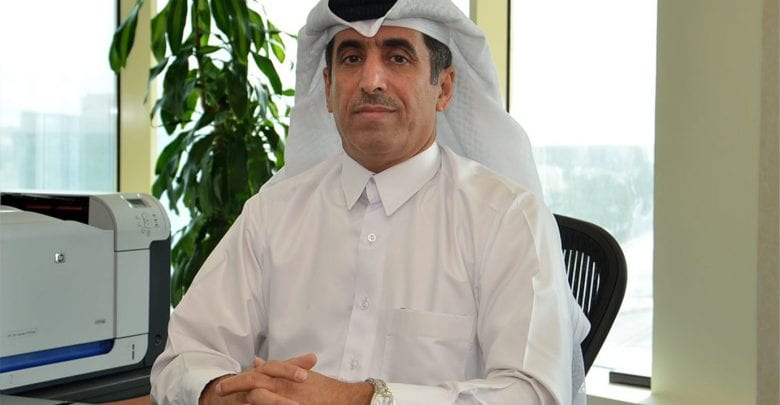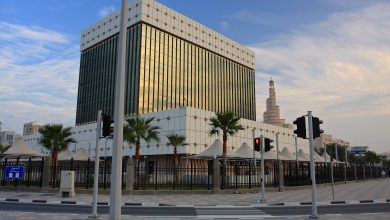
Qatari laws promote religious freedom: DICID chairman
رئيس مركز الدوحة لحوار الأديان: التشريعات القطرية تعزز الحريات الدينية
Qatari laws and legislation promote religious freedom and the Qatari society is known for its tolerance and acceptance of the other faiths and cultures, said Dr. Ibrahim bin Saleh Al Nuaimi, Chairman of the Doha International Center for Interfaith Dialogue (DICID).
Dr. Al Nuaimi, who headed Qatar’s delegation to the ministerial meeting of religious freedoms, held by the US State Department in Washington over three days, stressed the importance of such meetings, which seek to define clear frameworks for promoting religious freedom.
“Tolerance, religious freedom, and acceptance of the other is not a luxury in any way, but a religious, moral and humane duty ‘, said Dr. Al Nuaimi in a statement.
“In the face of conflicts based on religious and ethnic bases around the world and the emergence of extremism in certain groups in different religions and cultures, it is no longer possible to delay this duty ” he warned. “If the culture of dialogue does not prevail, the future will become uncertain,” he added.
The participation of the State of Qatar in this meeting came within the framework of its efforts to promote the values of tolerance and religious freedoms in the world, with its local and international expertise in this field.
The final day of the Ministerial Meeting on Religious Freedoms witnessed the participation of delegates from around the world, including ministers, assistant ministers and Ambassadors, who emphasized in their speeches and discussions the need to promote religious freedom, practice of religion, support pluralism and to the meet challenges to develop societies for the better.
The meeting was attended by delegations from more than 80 countries around the world with a record of making progress in religious freedom and committed to promoting Article 18 of the Universal Declaration of Human Rights, or countries recently started taking meaningful steps in that direction.
Among the topics discussed were religious freedom and women’s rights, religious freedom, combating extremism and terrorism, religious freedom and economic prosperity, addressing the legal challenges of religious freedom, advocating equal rights for all, preserving cultural heritage and providing support and care to victims of religious violence or persecution.
أكد سعادة الدكتور إبراهيم بن صالح النعيمي رئيس مجلس إدارة مركز الدوحة الدولي لحوار الأديان، موقف دولة قطر المتسامح تجاه الأديان والثقافات.. مشددا على أن القوانين والتشريعات القطرية تعزز الحريات الدينية، إلى جانب أن المجتمع القطري معروف بتسامحه وقبوله للآخر.
جاء ذلك في تصريح صحفي للدكتور النعيمي، رئيس وفد دولة قطر في الاجتماع الوزاري للحريات الدينية، الذي عقدته وزارة الخارجية الأمريكية في واشنطن على امتداد ثلاثة أيام.
ونوه رئيس مجلس إدارة مركز الدوحة الدولي لحوار الأديان بأهمية مثل هذه الاجتماعات، التي تسعى لتحديد أطر واضحة لتعزيز الحرية الدينية، قائلا” إن التسامح، والحرية الدينية، وقبول الآخر، ليس ترفا بأي حال من الأحوال، بل هو واجب ديني، وأخلاقي، وإنساني، لم يعد يحتمل التأجيل في ظل الاحتكاكات القائمة على أسس دينية وعرقية في مختلف أنحاء العالم، وظهور نزوع للتطرف لدى جماعات بعينها في مختلف الأديان والثقافات”.. محذرا من” أنه إذا لم تنتصر ثقافة الحوار، فسيكون المستقبل مجهولا”.
وتأتي مشاركة دولة قطر بهذا الاجتماع في إطار جهودها الرامية لتعزيز قيم التسامح والحريات الدينية في العالم، وذلك بما تمتلكه من خبرات محلية وعالمية في هذا المجال.
وقد شهد اليوم الختامي للاجتماع الوزاري للحريات الدينية حضورا سياسيا كبيرا من مختلف دول العالم، من بينهم وزراء ومساعدو وزراء وسفراء، أكدوا في كلماتهم ومداخلاتهم ضرورة تعزيز الحريات الدينية وممارسة الشعائر ودعم التعددية، ومواجهة التحديات لتطوير المجتمعات نحو الأفضل.
وحضر الاجتماع وفود من أكثر من 80 دولة حول العالم لديها سجل في تقدم الحرية الدينية، وملتزمة بتعزيز المادة 18 من الإعلان العالمي لحقوق الإنسان، أو التي اتخذت مؤخراً خطوات ذات مغزى للبدء في القيام بذلك.
ومن بين المواضيع التي ناقشها الاجتماع، الحرية الدينية وحقوق المرأة، والحرية الدينية ومكافحة التطرف والإرهاب، والحرية الدينية والازدهار الاقتصادي، ومواجهة التحديات القانونية للحرية الدينية، والدعوة إلى المساواة في الحقوق للجميع، والحفاظ على التراث الثقافي وتقديم الدعم والرعاية لضحايا العنف الديني أو الاضطهاد.



